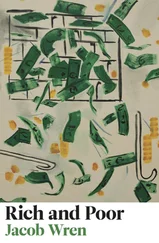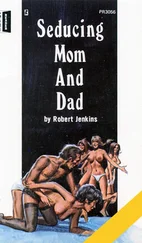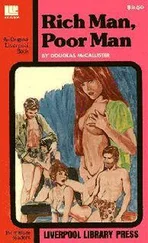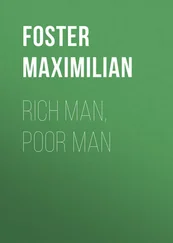Robert Kiyosaki - Rich Dad Poor Dad
Здесь есть возможность читать онлайн «Robert Kiyosaki - Rich Dad Poor Dad» весь текст электронной книги совершенно бесплатно (целиком полную версию без сокращений). В некоторых случаях можно слушать аудио, скачать через торрент в формате fb2 и присутствует краткое содержание. Жанр: Деловая литература, на английском языке. Описание произведения, (предисловие) а так же отзывы посетителей доступны на портале библиотеки ЛибКат.
- Название:Rich Dad Poor Dad
- Автор:
- Жанр:
- Год:неизвестен
- ISBN:нет данных
- Рейтинг книги:5 / 5. Голосов: 1
-
Избранное:Добавить в избранное
- Отзывы:
-
Ваша оценка:
- 100
- 1
- 2
- 3
- 4
- 5
Rich Dad Poor Dad: краткое содержание, описание и аннотация
Предлагаем к чтению аннотацию, описание, краткое содержание или предисловие (зависит от того, что написал сам автор книги «Rich Dad Poor Dad»). Если вы не нашли необходимую информацию о книге — напишите в комментариях, мы постараемся отыскать её.
Rich Dad Poor Dad — читать онлайн бесплатно полную книгу (весь текст) целиком
Ниже представлен текст книги, разбитый по страницам. Система сохранения места последней прочитанной страницы, позволяет с удобством читать онлайн бесплатно книгу «Rich Dad Poor Dad», без необходимости каждый раз заново искать на чём Вы остановились. Поставьте закладку, и сможете в любой момент перейти на страницу, на которой закончили чтение.
Интервал:
Закладка:
Thomas Edison was not balanced. He was focused. Bill Gates was not balanced. He was focused. Donald Trump is focused. George Soros is focused. George Patton did not take his tanks wide. He focused them and blew through the weak spots in the German line. The French went wide with the Maginot Line, and you know what happened to them.
If you have any desire of being rich, you must focus. Put a lot of your eggs in a few baskets. Do not do what poor and middle class people do: put their few eggs in many baskets.
If you hate losing, play it safe. If losing makes you weak, play it safe. Go with balanced investments. If you're over 25 years old and are terrified of taking risks, don't change. Play it safe, but start early. Start accumulating your nest egg early because it will take time.
But if you have dreams of freedom-of getting out of the rat race- the first question to ask yourself is, "How do I respond to failure?" If failure inspires you to win, maybe you should go for it-but only maybe. If failure makes you weak or causes you to throw temper tantrums-like spoiled brats who call an attorney to file a lawsuit every time something does not go their way-then play it safe. Keep your daytime job. Or buy bonds or mutual funds. But remember, there is risk in those financial instruments also, even though they are safer.
I say all this, mentioning Texas and Fran Tarkenton, because stacking the asset column is easy. It's really a low-aptitude game. It doesn't take much education. Fifth-grade math will do. But staking the asset column 'J is a high-attitude game. It takes guts, patience and a great attitude toward failure. Losers avoid failing. And failure turns losers into winners.'' Just remember the Alamo.
Reason No. 2. Overcoming cynicism. "The sky is falling. The sky is falling." Most of us know the story of "Chicken Little," who ran around warning the barnyard of impending doom. We all know people who are that way. But we all have a "Chicken Little" inside each of us.
And as I stated earlier, the cynic is really a little chicken. We all get a little chicken when fear and doubt cloud our thoughts.
All of us have doubts. "I'm not smart." "I'm not good enough." "So '$ and so is better than me." Or our doubts often paralyze us. We play the. | "What if?" game. "What if the economy crashes right after I invest?" Or "What if I lose control and I can't pay the money back?" "What if things don't go as I planned?" Or we have friends or loved ones who will remind us of our shortcomings regardless of whether we ask. They often say, "What makes you think you can do that?" Or "If it's such a good idea, how come someone else hasn't done it?" Or "That will never work. You don't know what you're talking about." These words of doubt often get so loud that we fail to act. A horrible feeling builds in our stomach. Sometimes we can't sleep. We fail to move forward. So we stay with what is safe and opportunities pass us by. We watch life passing by as we sit immobilized with a cold knot in our body. We have all felt this at one time in our lives, some more than others.
Peter Lynch of Fidelity Magellan mutual fund fame refers to warnings about the sky falling as "noise," and we all hear it.
"Noise" is either created inside our heads or comes from outside. Often from friends, family, co-workers and the media. Lynch recalls the time during the 1950s when the threat of nuclear war was so prevalent in the news that people began building fallout shelters and storing food and water. If they had invested that money wisely in the market, instead of building a fallout shelter, they'd probably be financially independent today.
When the riots broke out in Los Angeles a few years ago, gun sales went up all over the country. A person dies from rare hamburger meat in Washington State and the Arizona Health Department orders restaurants to have all beef cooked well-done. A drug company runs a national TV commercial showing people catching the flu. The ad runs in February. Colds go up as well as sales of their cold medicine.
Most people are poor because when it comes to investing, the world is filled with Chicken Littles running around yelling, "The sky is falling. The sky is falling." And Chicken Littles are effective because everyone of us is a little chicken. It often takes great courage to not let rumors and talk of doom and gloom affect your doubts and fears.
In 1992, a friend named Richard came from Boston to visit my wife and me in Phoenix. He was impressed with what we had done through stocks and real estate. The prices of real estate in Phoenix were depressed. We spent two days with him showing him what we thought were excellent opportunities for cash flow and capital appreciation.
My wife and I are not real estate agents. We are strictly investors. After identifying a unit in a resort community, we called an agent who sold it to him that afternoon. The price was a mere $42,000 for a two-bedroom townhome. Similar units were going for $65,000. He had found a bargain. Excited, he bought it and returned to Boston.
Two weeks later, the agent called to say that our friend had backed out. I called immediately to find out why. All he said was that he talked to his neighbor, and his neighbor told him it was a bad deal. He was paying too much.
I asked Richard if his neighbor was an investor. Richard said "no." When I asked why he listened to him, Richard got defensive and simply said he wanted to keep looking.
The real estate market in Phoenix turned, and by 1994, that little unit was renting for $1,000 a month-$2,500 in the peak winter months. The unit was worth $95,000 in 1995. All Richard had to put down was $5,000 and he would have had a start at getting out of the rat race. Today, he still has done nothing. And the bargains in Phoenix are still here; you just have to look a lot harder.
Richard's backing out did not surprise me. It's called "buyer's remorse," and it affects all of us. It's those doubts that get us. The little 1 chicken won, and a chance at freedom was lost.
In another example, I hold a small portion of my assets in tax lien certificates instead of CDs. I earn 16 percent per year on my money, which certainly beats the 5 percent the bank offers. The certificates are secured by real estate and enforced by state law, which is also better than most banks. The formula they're bought on makes them safe. They just lack liquidity. So I look at them as 2 to 7-year CDs. Almost every time I tell someone, especially if they have money in CDs, that I hold my money this way, they will tell me it's risky. They tell me why I should not do it. When I ask them where they get their information, they say from a friend or an investment magazine. They've never done it, and they're telling someone who's doing it why they shouldn't. The lowest I yield I look for is 16 percent, but people who are filled with doubt are willing to accept 5 percent. Doubt is expensive.
My point is that it's those doubts and cynicism that keep most people? poor and playing it safe. The real world is simply waiting for you to get rich. Only a person's doubts keep them poor. As I said, getting out of the rat race is technically easy. It doesn't take much education, but those doubts are cripplers for most people.
"Cynics never win," said rich dad. "Unchecked doubt and fear creates i a cynic. Cynics criticize, and winners analyze" was another of his favorite sayings. Rich dad explained that criticism blinded while analysis opened -< eyes. Analysis allowed winners to see that critics were blind, and to see opportunities that everyone else missed. And finding what people miss is | key to any success.
Real estate is a powerful investment tool for anyone seeking financial independence or freedom. It is a unique investment tool. Yet, every time I mention real estate as a vehicle, I often hear, "I don't want to fix toilets." That's what Peter Lynch calls "noise." That's what my rich dad would say is the cynic talking. Someone who criticizes and does not
Читать дальшеИнтервал:
Закладка:
Похожие книги на «Rich Dad Poor Dad»
Представляем Вашему вниманию похожие книги на «Rich Dad Poor Dad» списком для выбора. Мы отобрали схожую по названию и смыслу литературу в надежде предоставить читателям больше вариантов отыскать новые, интересные, ещё непрочитанные произведения.
Обсуждение, отзывы о книге «Rich Dad Poor Dad» и просто собственные мнения читателей. Оставьте ваши комментарии, напишите, что Вы думаете о произведении, его смысле или главных героях. Укажите что конкретно понравилось, а что нет, и почему Вы так считаете.












